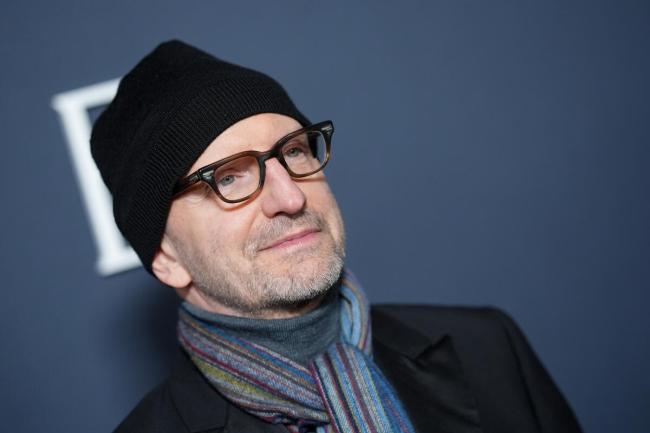Writer, director, cinematographer, and editor Steven Soderbergh has many talents, but he attributes career longevity to one skill above all.
“I’m someone who tries to be adaptable,” said Soderbergh when he was a guest on IndieWire’s Toolkit podcast earlier this year. “I feel like the cockroach of the industry, like there’s no version of this that I can’t work in, no matter how nuclear it gets.”
In his 36 years of making films and television, Soderbergh has seen the business go through its share of ups, downs, shifting trends, and technological revolutions. Throughout, Soderbergh remained prolific, whether it meant rebooting the once-dead “Ocean’s 11” franchise, shooting movies on an iPhone, or trying his hand at self-distribution. No matter how much the way movies are watched or made has changed, he kept making original and unexpected films.
Which is why, considering how challenging things are for indie filmmakers in 2025, we asked what his advice would be for first-time feature filmmakers breaking into the industry.
“Right now, in terms of what’s attracting people and what generates chatter, if I were starting out and I had any interest and proclivity at all, I’d be looking toward the horror-thriller genre to make my move,” said Soderbergh.
Soderbergh’s 1989 “Sex, Lies, and Videotape,” one of the most successful indie debuts ever, is often credited as the film that helped usher in the 1990s American indie wave. The small film was not only lauded by critics and received festival accolades, but it also found unexpected commercial success by tapping into American audience’s hunger for the adult-oriented films of the 1970s.
“‘Sex, Lies’ was just my ripoff of [Mike Nichols’ 1971 film] ‘Carnal Knowledge,’” Soderbergh said. “It was designed to be small because it would be cheap. If you’re starting out now, your best bet is to be working in a genre space if you want to get something financed. And some of the most interesting filmmaking is happening specifically in the horror genre lately.”
Since the release of “Che: Part I & II” in 2008, Soderbergh said, he thinks of himself as exclusively a genre filmmaker. He ran down the dozens of projects he’s made over the last 17 years: “Contagion” is horror, “Behind the Candelabra” a biopic, “The Knick” a doctor show, and so on. Soderbergh views genre as a path to your work being seen; the structure it supplies is also liberating.
“I’ve said, and believe, the evidence is all around us, [genre] is just such a great delivery system for whatever ideas you’re interested in,” said Soderbergh. “Everybody wins. For an audience who likes that genre, if you’ve been respectful of the pillars of that genre, it’s operating on this kind of superficial level, they can read it there. And then there’s all this other stuff you can pack underneath that to keep it from being single-use plastic.”
Soderbergh also sees signs that, despite the doom-and-gloom about the state of movies, there is reason to believe a new generation of indie filmmakers also will have a new generation of arthouse audiences to embrace their work.
“The good news is though, from what I gather talking to people at Neon, Focus, and A24, is young people are going to the movies, and the numbers bear this out,” said Soderbergh.
The “Black Bag” director said he believed the use of outdated metrics are one reason traditional moviemaking feels like it is evaporating. He pointed to the success of Metrograph — the New York City independent theater that found a younger urban audience with adventurous programming, and has moved into distribution — as an example of what is possible.
“Metrograph is a group that I’ve stayed very, very closely in touch with because that’s a scalable model — a university town of 25,000-to-30,0000 people can support a Metrograph,” said Soderbergh. “We need to change the metric of what a success is and stop using the studio model because the bottom line is Metrograph is very successful. So the question now is: Can we do 20 of them? Because that’s a real business.”
To hear Soderbergh’s full interview, subscribe to the Filmmaker Toolkit podcast on Apple, Spotify, or your favorite podcast platform.



